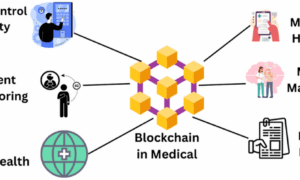Are you ready to embark on a mind-bending journey into the future of space exploration? Prepare to be awe-inspired as we delve into the fascinating world of quantum computing and its profound impact on advancing space technology. Brace yourself for a captivating adventure where cutting-edge science merges with boundless possibilities, unveiling a realm where traditional limitations are shattered and new frontiers are conquered.
Introduction
One of the key reasons why quantum computing has gained so much attention in recent years is its ability to tackle problems that are beyond the capabilities of classical computers. This is due to a phenomenon called superposition, where qubits can exist in multiple states simultaneously. Another important aspect of quantum computing is entanglement, where two or more qubits can be connected in such a way that their states become correlated with each other.
Overview of Space Technology and its Limitations
Space technology refers to any technology that is used for space exploration, telecommunications, or satellite operations. It encompasses a wide range of technologies, such as spacecraft design and manufacturing, propulsion systems, communication networks, navigation systems, and remote sensing instruments.
One of the main goals of space technology is to advance our understanding and exploration of the universe. This includes studying celestial bodies like planets, stars, and galaxies, as well as discovering new forms of energy and resources in outer space. Additionally, space technology plays a crucial role in enabling satellite-based services such as weather forecasting, global positioning systems (GPS), and telecommunication networks.
The development of space technology has significantly advanced over the years, with major breakthroughs in areas such as rocketry, satellite engineering, robotics, and materials science. However, despite these advancements, there are still limitations that hinder our progress in this field.
One major limitation faced by space technology is the high cost involved in research and development. Building spacecraft and launching them into orbit requires immense financial resources, which only a few countries or organizations can afford. This limits the scope of projects that can be undertaken and slows down progress in the field.
How Quantum Computing is Revolutionizing Space Technology
Quantum computing has been making waves in the technology industry for its potential to solve complex problems and perform calculations at an unprecedented speed. But what many people may not realize is that this revolutionary technology is also transforming the field of space technology. From improving satellite communication to enhancing navigation systems, quantum computing has opened up a whole new realm of possibilities in space exploration.
One of the biggest challenges in space technology is dealing with vast amounts of data coming from satellites and spacecraft. Traditional computers struggle to process such large volumes of information, often leading to delays and inefficiencies. However, with quantum computing’s ability to handle massive datasets and perform multiple computations simultaneously, it presents a game-changing solution for managing data in space.
One significant application of quantum computing in space technology is improving satellite communication. Currently, satellites rely on radio frequency signals for communication, which can be easily disrupted by interference or weather conditions. This can lead to interrupted or unreliable communication between ground stations and satellites. However, with quantum communication protocols such as Quantum Key Distribution (QKD), it is now possible to transmit information securely through encrypted photons over long distances without being intercepted or compromised.
Advancements in Satellite Communication with Quantum Computing
Quantum computing, a cutting-edge technology that utilizes the principles of quantum mechanics to perform complex calculations, has been making waves across various industries. One of the fields where its impact is being felt greatly is space technology. With the constant need for faster and more efficient communication in space, scientists and researchers have turned to quantum computing to improve satellite communication.
Traditional satellites use radio waves to communicate with ground stations on Earth. However, these signals can be easily intercepted or jammed by hackers or hostile nations, posing a significant security threat. This has often been a major concern for governments and organizations using satellite communication for sensitive data transmission.
With quantum computing, it is now possible to achieve secure communication through quantum encryption. This involves encoding information into particles of light known as photons, which are then sent through space to a receiving station on Earth. Any attempt to intercept or eavesdrop on these photons would result in their destruction, alerting both parties to potential security breaches.
Improving Navigation Systems with Quantum Sensors
The field of navigation has been greatly impacted by the advancements in quantum computing and sensing technologies. Traditional navigation systems, such as GPS, rely on satellites to accurately determine position, velocity, and time information. However, these systems can be susceptible to interference and signal disruptions, leading to reduced accuracy and reliability.
This is where quantum sensors come into play. These devices use quantum mechanics principles to measure physical quantities with unprecedented precision and sensitivity. They are able to detect tiny changes in the environment, making them ideal for applications in navigation systems.
One of the key benefits of using quantum sensors in navigation is their ability to work independently of external signals or infrastructure. This means that they can provide accurate positioning data even in areas where traditional GPS signals are weak or unavailable, such as underground or underwater.
Additionally, quantum sensors have much higher precision compared to conventional sensors used in navigation systems. They exploit properties like superposition and entanglement to achieve unparalleled accuracy levels. This allows for more precise tracking of movements and locations, which is crucial for space missions where even slight errors could have catastrophic consequences.
Utilizing Quantum Encryption for Secure Space Communications
Quantum encryption has emerged as one of the most promising technologies for securing communications in space. Traditional methods of encryption, such as RSA and AES, rely on mathematical algorithms that can be easily broken by powerful computers. However, quantum encryption uses the principles of quantum mechanics to create an unbreakable code, making it a game-changing technology for secure space communications.
At its core, quantum encryption works by using the fundamental properties of particles at the subatomic level. These particles have a unique property called “quantum superposition,” meaning they can exist in multiple states simultaneously. This allows them to transmit information in a way that cannot be intercepted or copied without detection.
The key principle behind quantum encryption is “quantum entanglement.” This phenomenon occurs when two particles become connected in such a way that any change to one also affects the other, regardless of distance. By exploiting this connection between particles, it is possible to create an unbreakable communication channel that guarantees the secure transmission of data.
In traditional encryption methods, keys are used to encrypt and decrypt messages. However, these keys can potentially be intercepted or cracked by advanced computing systems. In contrast, quantum encryption does not use keys but rather relies on measuring the state of entangled particles to determine if anyone has attempted to intercept the message.
Challenges and Future Possibilities of Quantum Computing in Space Technology
While quantum computing has the potential to revolutionize space technology, it also presents several challenges that must be overcome before its full potential can be realized. These challenges include technical limitations, high costs, and the need for specialized expertise.
One of the main technical limitations of quantum computing in space technology is the fragility of quantum systems. Unlike classical computers, which are built with solid-state components that are less susceptible to external factors, quantum computers rely on delicate qubits that can easily be disrupted by environmental factors such as temperature fluctuations or electromagnetic interference. This poses a significant challenge for using quantum computers in space, where there are constant changes in temperature and exposure to radiation.
Another major challenge is the high cost associated with developing and maintaining a functional quantum computer. Currently, building a powerful enough quantum computer for practical use requires cutting-edge technology and expensive materials such as superconducting metals. Additionally, due to their sensitivity, these computers require specialized maintenance and calibration, which adds to their already high cost.
Conclusion
The rapid advancements in quantum computing and its potential applications have sparked excitement and intrigue in various industries, including the space industry. With its ability to process vast amounts of data and solve complex problems at unprecedented speed, quantum computing is set to revolutionize the way we explore and utilize space.

































